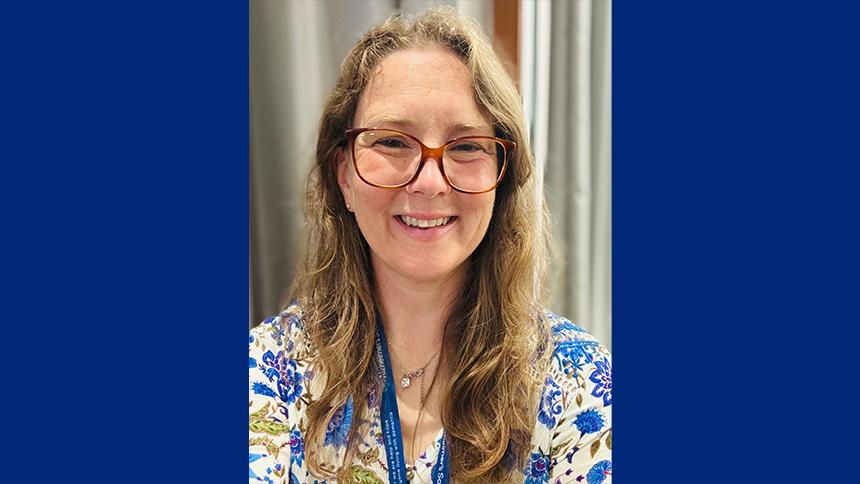Research
Can better communication improve mealtimes for people with dementia?
Rosey Meiring is studying how the communication skills of care home staff can make mealtimes better for people with dementia.
When she was working in care homes, speech and language therapist Rosey Meiring saw how challenging mealtimes could be for people with dementia.
‘It can also be worrying for carers as well as friends and family, as they may be concerned about nutrition, and the social aspects of eating and drinking,’ says Rosey, in west Wales.
But she also saw how carers can make mealtimes more enjoyable and beneficial if they’re great communicators – even if they’re not aware of their skills.
For people living with dementia who need assistance at mealtimes, skilled carer communication is vital.

Dementia research journey
Inspired to find out more, Rosey has embarked on a PhD with funding from Alzheimer’s Society.
‘My aim is to find out what type of staff communication helps to avoid or resolve distress and problems around eating and drinking, as well as what is not helpful.’
Ultimately, Rosie wants her findings to improve training for care staff.
‘My hope is that my research will add to the growing number of exciting studies helping us understand how interaction works with people living with dementia.
‘What is it that carers do that helps people living with dementia to manage everyday tasks without getting distressed? And how can we pass those skills on?’
Analysing mealtime conversations
Rosey’s work involves videoing mealtimes and studying the recordings using a method called ‘conversation analysis’.
‘This means I’ll watch the videos lots of times and type everything I see and hear.
‘From these transcripts, I’ll look at what carers are doing with their words and actions that helps to foster good mealtimes.’
Rosey, who’s had a varied career in healthcare and education, heard about this type of research at a conference.
‘A speech and language therapist talked about using videos of real-life interactions on inpatient wards and finding patterns that could help minimise distress in people with advanced dementia.
‘That presenter is now my PhD supervisor and has helped me put together my team, who have supported me through the process of getting a research grant with Alzheimer’s Society.’
Improve quality of life
Rosey describes her research as a ‘real privilege’.
‘Not only will it add to the body of evidence on how to improve quality of life for people living with dementia, but it is a fabulous development opportunity for me.
‘I am hugely grateful to Alzheimer’s Society and its supporters for their funding of my project and to the care homes, staff and residents who bravely allow themselves to be filmed.’
Your donation funds research
Your donation helps us to fund research into all forms of dementia, from prevention to breakthrough drug treatments.



comments